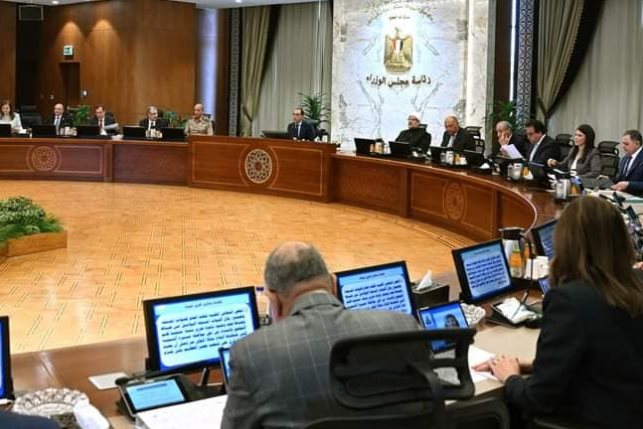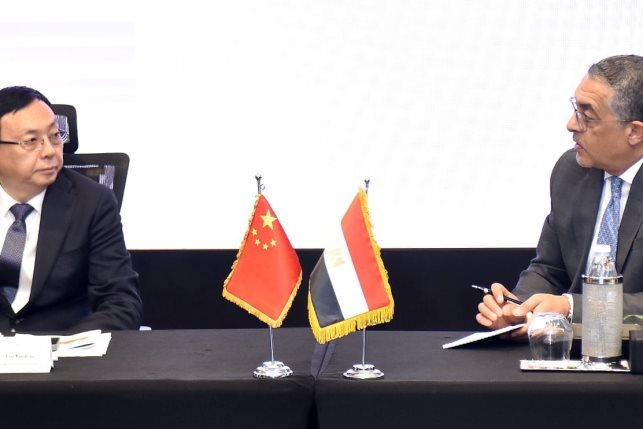On the Egyptian Economy and Industry Outlook with Mohamed El-Sallab
Few businesses are as successful as El-Sallab Group. Mohammed El-Sallab speaks about the legacy, and why he’s bullish on Egypt

As published in our July - August 2021 issue
Few businesses are as successful as El-Sallab Group. Mohammed El-Sallab speaks about the legacy, and why he’s bullish on Egypt.
Macroeconomics and Industry
What was the state of the Egyptian economy prior to the economic reform program of 2016?
In 2014, Egypt’s economy was unstable after two revolutions, and there was a general state of confusion following the upheaval, and therefore this created an imperative need to implement the economic reform program in 2016, which included measures such as liberalizing the exchange rate and increasing interest rates.
The weak economic situation created the need for an ambitious plan to rebuild the state and the economy, and it proved positive.
Four years after the launch of the economic reform program, what are the main advantages and disadvantages of the first phase of the program?
After 4 years, it can be said that Egypt has strongly succeeded in implementing an economic reform program, and this is positive for the country in the long term.

I see the economic reform process’s resounding success; the value of the Egyptian pound is improving, and the economy has been able to absorb the coronavirus crisis’s negative effects given the economy’s capacity to withstand the shocks
However, one of the negative aspects of this stage is that investments are directed to banks due to high interest rates, and this of course negatively affects the industry.
At the beginning of 2020, the Egyptian state took a number of measures to localize the industry and increase the proportion of the local component [in goods], and these measures were disrupted due to the Covid-19 crisis, but the state is still proceeding with a plan to reform the industry, because history has proven that there is no alternative to high-tech industry in supporting sustainable economic growth.
Today, the plan is to reduce interest so that factories can continue, and we have seen soft financing initiatives for factories at an interest rate of 8%.
Other initiatives included financing small and medium enterprises at an interest rate of 5%, the initiative to settle defaulters’ debt, and other initiatives primarily aiming to help the industrial sector return to growth.
How do you evaluate the second phase of the macroeconomic program, and in your opinion, what are the most important requirements for reforming the industrial sector?
The economic reform program’s second phase is completely different, as it is primarily based on higher-priority sectors: industry, technology, and agriculture.
These sectors are also the most capable of driving economic growth and achieving sustainable development, by boosting exports, supporting food security, reducing imports, and attracting foreign investment.
There is also great interest in technical education, with the state focusing on establishing technical schools attached to major factories, directing interest in small and medium industries; this is one of the main reasons behind economic growth and development in countries such as Germany, China, Korea, Malaysia, Indonesia and Vietnam.
The state is working on this aspect and provides factories, lands, facilities, logistical, material and marketing support, and holds exhibitions to help market these small factories. The automation of the state’s financial system and the digital transformation of taxes and customs give the business community transparency and reassurance.
Additionally, one of the most important advantages of this economic reform stage is a shift whereby the state increasingly relies on the private sector. The industrial sector has borne the brunt of the rise in energy prices, according to industry leaders.
How can you balance support for industry while at the same time not adding new burdens on the state budget?
It is necessary to separate energy prices from the industry, or industry support amongst the relevant ministries.
The Ministries of Electricity and Petroleum are the two ministries that deal the most closely with industry and have a problem with the industry, especially after the price hike. The two ministries alone should not foot the bill.
The government, represented by the Ministry of Finance, collects value-added, income tax, and all kinds of taxes from factories. It would be better if the Ministry of Finance supports these industries by paying the required support difference to the Ministries of Petroleum and Electricity to maintain the price.
Also, local energy prices must reach the level of international prices because our goal is to export, and without that we wouldn’t be able to compete; this must be done through export and energy subsidies through the Ministry of Finance, ensuring operational economic efficiency.
The ministries of Electricity and Petroleum should also not deal with factories for the purpose of profit; the industry provides job opportunities and pays taxes, and therefore a balance must be achieved while providing energy at competitive prices. We need a clear energy pricing policy, in line with the global market.
In the same context, what are the requirements for injecting new local and foreign investments into the industrial sector, and what are the sectors most in demand at the present time?
Egypt has 22 new cities under construction, is planning to eliminate slum neighborhoods, and has a very wide consumer market, requiring construction, clothing, food and services, all of which requires the localization of industries and an increase in added value, thereby requiring the state to have an industry map that determines the required industries and their locations.
The state must stand by the industry and support it in its early stages by encouraging investors to invest in Egypt.
Egypt is an open market and the whole world is an open market. There are landlocked countries that do not overlook ports, but they export three times what Egypt exports, whereas we are a country characterized by a distinguished geographical location and we have a great potential to increase exports, requiring state support.
The multiplicity of taxes paid by factories such as real estate tax, dividend tax, income tax and value added tax, acts as a deterrent to investment. There must be a more stable, less precarious direction for taxation levels on factories; the Supreme Council of Taxes is responsible for setting up this vision and monitoring its implementation.
Furthermore, for any investor looking for political stability and economic stability, Egypt is also a wise choice.
On the economic aspect, there is a need for improvement on energy prices and tax stability.
Can Egypt achieve total annual exports of $100 billion? What are the requirements to reach this goal, what are the sectors capable of achieving it, and what are the industries that can contribute to this ideal target?
Egypt has a great ability to achieve this goal.

Several now-stalled factories were previously exporting; international agreements and cost reduction are key to achieving the goal of $100 billion in exports
We also need to improve collaboration with African markets.
What are the construction industry’s main challenges in Egypt, and has the sector benefited from the high prices of raw materials such as iron and aluminum during the recent period? What is the impact of reconstruction projects on the sector, and how can it support maximum benefit?
The building materials industry faces many challenges, just like any industry, but problems such as energy prices, transportation and shipping prices locally and abroad are increasing, given that this industry is energy-intensive, and an industry such as ceramics was not previously included in the export subsidy program, but it was added in the new program that came into effect starting July 1.
I expect this matter will greatly support exports’ growth during the upcoming period, and will contribute to Egyptian companies’ ability to strongly participate in reconstruction projects in Arab countries.
In Libya, Iraq, Gaza and Sudan, we will have the ability to compete because we produce goods of high quality and we will be able to achieve price competition as well, which will strongly reflect on Egyptian exports, especially building materials, due to Arab countries’ preference for the Egyptian product.
As for prices of raw materials, of course any increase in raw materials will be reflected in production costs and thus, the product price. The industry was negatively affected by the increase in international prices of raw materials and not the other way around.
How has the construction upturn in Egypt affected demand volumes of building materials, and do you expect an increase in the prices of building materials in the upcoming period after the rise of some materials globally?
Of course, Egypt’s construction upturn led to an increase in the demand for building materials, both in new cities and national projects, but this demand was negatively affected during the suspension of building licenses, especially since construction represents a significant amount of demand for building materials, but I expect this demand to rebound since building permits are back again with new requirements.
Talking about expectations of an increase or decrease in prices is no longer as easy as it was previously, since the price of building materials is affected by the international prices of raw materials that move very quickly and sometimes with sudden movements that are difficult to anticipate, but in the end any pricing is governed by the rules of supply and demand.
How has the Coronavirus pandemic affected the industrial sector, especially building materials? Has the sector recovered from the pandemic’s repercussions, and how can all workers be vaccinated to ensure that production is not affected?
The industrial sector benefited from the Coronavirus crisis, as exports increased due to other countries halting exporting. Industries such as medical supplies expanded, and the food sector was one of the sectors that made the most profits during the crisis, but what affected the building materials sector negatively during the past period is the suspension of building permits.
As for the vaccinations, the government is making a great effort to vaccinate the largest possible number of citizens within a short time period, which are very appreciated efforts.
I expect that increased vaccination rates will contribute to keeping the wheel of production turning, benefiting all sectors without exception.
What industrial projects does Egypt need at the present time, and how can Egyptian businessmen exploit and develop public business sector companies?
Egypt needs to prioritize technology in all fields, especially the industrial and high-tech industries. Technology itself is a starting point for any other sector.
I hope that the technological industries will witness a great renaissance that keeps apace with Egypt’s tremendous development in all fields, and these are great opportunities for the private sector investment.
As for business sector companies, I see the ministry’s tendency to involve the private sector in development projects, which are good opportunities, especially in companies that work in profitable fields such as the garment industry, spinning and weaving, and the real estate sector.
These are attractive sectors, provided that the partnership is based on strong foundations aimed at promoting companies and increasing profitability, thus benefiting both parties.
El Sallab group’s legacy of excellence
Egypt is famous for its multiplicity of family businesses. Which are the largest and most successful of these companies, and what are the most important challenges facing their growth and continuity?
Egypt has many successful family businesses. I will not mention specific names, and this exists all over the world, such as BMW, Mercedes, Adidas, and others.
This type of company has strong foundations for survival and continuity because those in charge of them always fear for the family’s name and reputation. Family businesses have a lifespan of more than a hundred years, including El Sallab Group, which began in 1912.

As for the obstacles they face, they are no different from the obstacles and challenges generally facing investment and the work of companies in Egypt.
You took over from the leadership of the Mostafa El-Sallab group at an early age, how were you prepped to take this position? What qualities did you inherit from your father, what were the most prominent challenges you faced at the beginning of your work, and what are your ambitions for the group?
In fact, I started working with my father at a very early age, at the age of 18, and I was constantly trained in foreign factories, and I worked with the group in all jobs, stores, marketing, technology management, human resources, sales and importing, for about 7 years before I took any leadership positions in the company, until I gained the necessary experience to manage the work.
I assumed the position of Vice Chairman of the Board of Directors in 2008 after I gained the necessary experience. With the death of my father, I assumed the position of Chairman of the Board of Directors, and it was a great challenge since my brother Tarek and I were still quite young, but we had a goal in mind: to maintain the family name, the company’s advancement, and ensure Sallab remains the number one name in this field.
I have great ambitions for the group, and of course we have plans to work in other new fields; we also have ambitions to increase production lines and grow the group even more.
The most important thing I learned from my father is sincerity at work, and dealing with all employees and workers in the company as part of the family.
Does El Sallab Group see that the prices of its current products reflect production costs, and is there an intention to increase prices in the upcoming period after demand recovers?
The group consists of Royal Factory, the group’s industrial arm, and El Sallab Company, the group’s commercial arm, and they complement each other.
For the factory, of course, the cost of production was affected by the factors you mentioned, including rising energy prices.
However, the pricing policy takes into account all the factors of cost, production, and the market; a cost is thereby set in proportion to the factors of supply and demand, which determine the price. We have no intention of increasing prices, and this is governed by the rules of supply and demand.
What is the volume of El Sallab Group’s export, and how much does it represent in sales? Does the group have export dues, and what are the group’s proposals to increase ceramic exports in Egypt?
El Sallab Group exports to a very large group of European, Arab, African and Asian countries as well as the Americas, and we were able to open markets in all these countries despite fierce competition due to the quality of the product and design, distinguishably characteristic of El Sallab Group and the Royal Factory. We were able to strongly compete because we have the latest machines and technology in this field.
As for export dues, in reality the ceramic industry in Egypt was constrained because it was not among the industries included in the export support program, but this matter was remedied in the last program that began as of July 1, and the ceramic industry was included in the export support program, which will bring great benefit to Egypt during the upcoming period, especially due to the export opportunities rep[1]resented in reconstruction projects.
This will have a major role for Egypt’s building materials sector, given that it is one of the strongest countries in the building materials industry and there is global popularity in this field.
What are the most profitable sectors in Egypt, and what is a prospective project you wish to establish?
There are many profitable sectors in Egypt, although any field will witness a gain and a loss, but Egypt has more than one hundred million citizens, a wide consumption market, and any project can make a profit if it is studied well, but what any sector needs to achieve the required profitability is to overcome the investment obstacles it faces.
The project I most wish to create, which is my dream, is to establish a technical school in the name of Mostafa El Sallab to teach Egyptian workers and train them in the technical skills needed to succeed in the labor market. It would be particularly beneficial for the ceramics sector.
Who is your role model among businessmen in Egypt and outside Egypt?
Mostafa El Sallab [my father]





